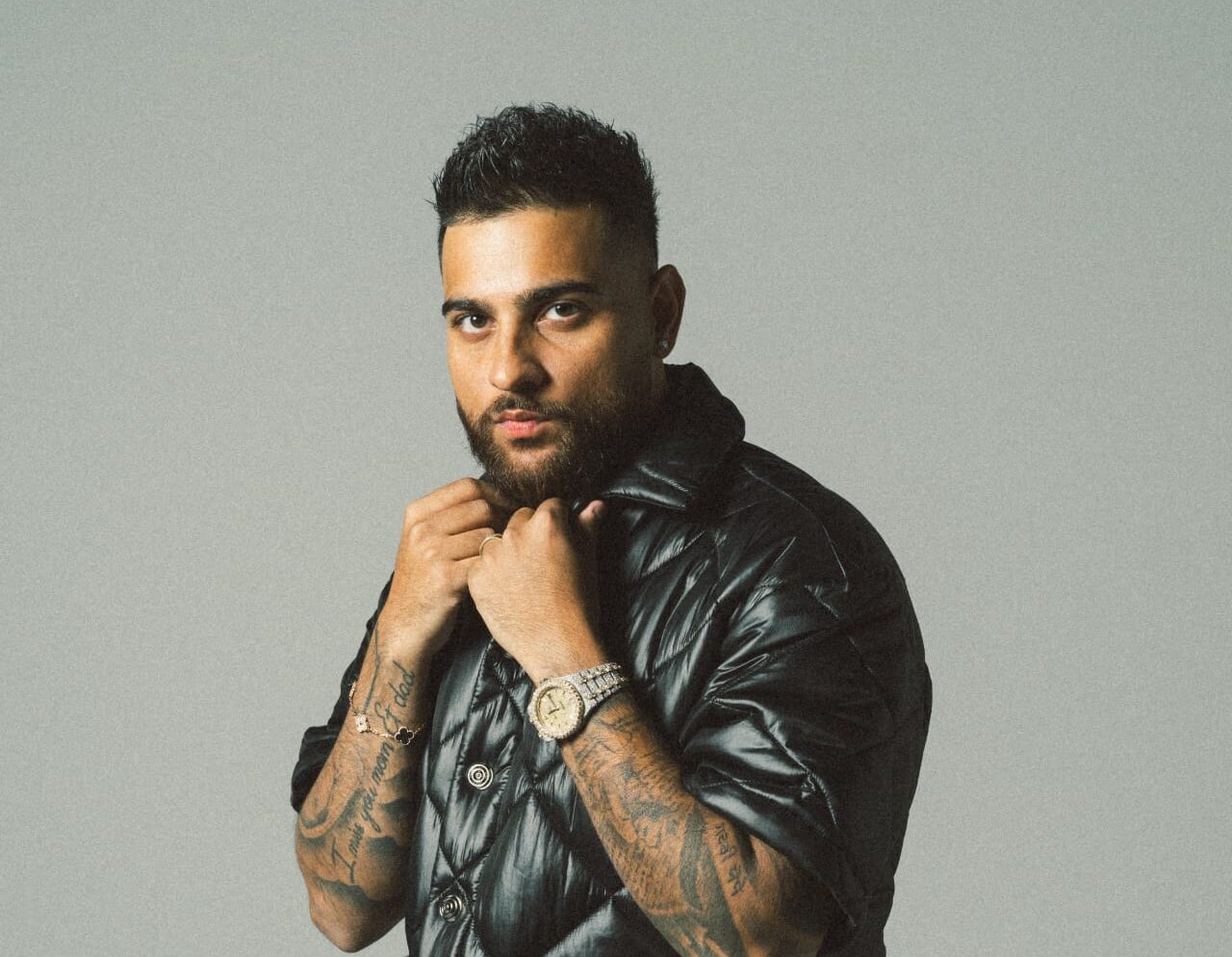Punjabi singer and rapper Karan Aujla, known for his chart-topping hits and distinctive style, has found himself in legal hot water just before the kickoff of his highly anticipated India tour, It Was All A Dream. Scheduled to begin in Chandigarh on December 7, 2024, the tour is set to feature performances across eight cities. However, controversy has arisen following allegations that some of Aujla’s songs promote harmful themes, such as the glorification of alcohol, drugs, and violence.
Complaint Lodged Against Karan Aujla
Chandigarh-based professor Panditrao Dharnevar has filed a formal complaint against the singer, urging authorities to intervene. According to reports by ABP, Dharnevar has specifically objected to songs like Chitta Kurta, Few Days, Adhia, Bandook, Alcohol 2, and Gangsta, alleging that they could negatively influence listeners, particularly young audiences.
The professor has requested that these songs not be performed during Aujla’s concerts. He has also warned that he would file a defamation lawsuit against the Senior Superintendent of Police (SSP) and the Director General of Police (DGP) of Chandigarh if these performances are allowed, holding them accountable for any negative repercussions.
This legal confrontation has raised concerns about the balance between artistic freedom and social responsibility, a recurring theme in debates surrounding the entertainment industry.
A Parallel to Diljit Dosanjh’s Controversy
This is not the first time a Punjabi artist has faced backlash over their lyrics. Earlier this year, fellow singer and global icon Diljit Dosanjh encountered similar challenges during his Dil-Luminati Tour. The Telangana government issued a notice barring Dosanjh from performing songs referencing alcohol.
In response, Dosanjh modified the lyrics of some of his popular tracks, changing 5 Tara Theke to 5 Tara Hotel and Daaru ‘Ch Lemonade to Coke ‘Ch Lemonade. Despite complying with the directives, Dosanjh didn’t shy away from voicing his opinion on the matter.
Taking a humorous yet pointed jab, he remarked, “Let’s launch a movement—if all states completely ban liquor consumption, I promise never to sing about alcohol again for the rest of my life. But is that even possible?” He also criticized Bollywood actors for endorsing alcohol brands, pointing out the double standards often imposed on musicians.
What Lies Ahead for Karan Aujla
Karan Aujla, one of the most prominent figures in modern Punjabi music, now faces mounting pressure as he prepares for his debut arena tour. The tour is slated to span eight major Indian cities, starting in Chandigarh on December 7, 2024. Other scheduled stops include Bengaluru (December 13), New Delhi (December 15), and Mumbai (December 21).

The Vancouver-based artist has achieved significant success with hits like Softly, White Brown Black, and Tauba Tauba from the album Bad Newz. Known for his unique blend of Punjabi folk and contemporary music, Aujla has cultivated a massive fan base worldwide. His India tour is expected to draw thousands of fans, making the controversy surrounding his lyrics a critical issue for both the artist and his team to navigate.
Artistic Freedom vs. Social Responsibility
The controversy surrounding Aujla and Dosanjh highlights a broader debate about the role of artists in addressing societal concerns. While critics argue that certain themes in music can perpetuate unhealthy behaviors, others defend artistic freedom, emphasizing that lyrics often reflect societal realities or serve as creative expression.
Aujla’s case underscores the fine line that artists walk when producing music that resonates with audiences while also being mindful of its broader implications. The professor’s complaint has sparked discussions about the accountability of artists in shaping cultural narratives, especially in an era where music has a profound influence on younger generations.
The Road Ahead
As Karan Aujla gears up for his tour, it remains to be seen how he and his team will address the allegations. Whether by modifying lyrics, excluding specific songs from his setlist, or addressing the concerns publicly, the singer’s response will likely shape public perception moving forward.

For fans, the tour is a long-awaited celebration of Aujla’s contributions to Punjabi music. However, the controversy serves as a reminder of the challenges artists face in balancing creative expression with societal expectations, particularly in a rapidly evolving cultural landscape.

